Competitions and programs (118)
2017 Peter Porter Poetry Prize
On March 23, before a big audience at Collected Works Bookshop in Melbourne, Morag Fraser announced the two winners of the 2017 Peter Porter Poetry Prize (worth $7,500). The winners, chosen from a field of nearly 1000 entries from twenty-two countries, are Louis Klee (Vic) for his poem ‘Sentence to Lilacs’ and Damen O’Brien (Qld) for ‘pH’. The winners each receive $2,500.
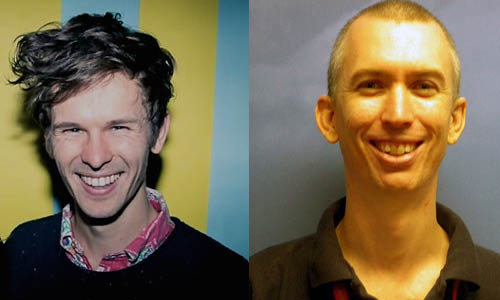 2017 Porter Prize winners Louis Klee and Damen O'Brien
2017 Porter Prize winners Louis Klee and Damen O'Brien
The other five shortlisted poets – Ronald Dzerigian (USA), Anthony Lawrence (NSW), Michael Lee Phillips (USA), Jen Saunders (NSW), and Jessie Tu (NSW) – each receive $500. The seven shortlisted poems appear in ABR’s March 2017 issue.
The judges were Ali Alizadeh, Jill Jones, and Felicity Plunkett.
ABR Editor Peter Rose commented: ‘The Porter Prize – now in its twelfth year – is dear to our hearts at ABR. Year after year it goes on generating hundreds of new poems around the world. This year’s field was by far the largest to date. We thank everyone who entered and heartily congratulate our two winners and the other five shortlisted poets.’
About the winners
Louis Klee lives in Melbourne and is currently studying in Cambridge. He has studied playwriting at NIDA and is an MFA writing candidate at the VCA. He earned a Bachelor of Philosophy at the ANU. His poetry has appeared in Meanjin, Cordite, and Gargouille, among other places, and his plays have been shortlisted for prizes such as The Silvergull Award. He is currently working on his first full-length collection of poems.
Damen O’Brien is a Queensland poet. His work has been published in Cordite and The Courier Mail, and has won or been highly commended in the WB Yeats Poetry Prize, the Nillumbik Ekphrasis Poetry Award, the Philip Bacon Ekphrasis Prize, the Ipswich Poetry Feast, and the FAW Tasmania Poetry Prize.
Please read our Frequently Asked Questions page before contacting us with queries about the Porter Prize.
Click here for more information about past winners and to read their poems.
Click here for more information about the 2017 judges.
We gratefully acknowledge the long-standing support of Ms Morag Fraser AM, and the support of ABR Patrons. The print is donated by Mr Ivan Durrant in honour of Georges Mora.
2017 Porter Prize Judges
 Ali Alizadeh's collection of poetry, Ashes in the Air (UQP, 2011) was shortlisted for the Prime Minister's Literary Award. His latest book, Transactions (UQP, 2013), was described as 'twisted', 'vicious' and 'remarkable'. His new book, The Last Days of Jeanne d'Arc, will be published in 2017 by Giramondo Publishing. He lectures at Monash University.
Ali Alizadeh's collection of poetry, Ashes in the Air (UQP, 2011) was shortlisted for the Prime Minister's Literary Award. His latest book, Transactions (UQP, 2013), was described as 'twisted', 'vicious' and 'remarkable'. His new book, The Last Days of Jeanne d'Arc, will be published in 2017 by Giramondo Publishing. He lectures at Monash University.
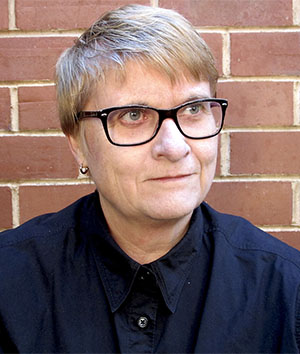 Jill Jones has published nine full-length books of poetry, including Breaking the Days (2015), The Beautiful Anxiety (2014), which won the 2015 Victorian Premier's Literary Award for Poetry, and Ash is Here, So are Stars (2012). Her work is represented in major anthologies, including the Macquarie PEN Anthology of Australian Literature (2009) and The Penguin Anthology of Australian Poetry (2009). Her poetry was included in the 2016 ABR States of Poetry anthology for South Australia. She is a member of the J.M. Coetzee Centre for Creative Practice, University of Adelaide.
Jill Jones has published nine full-length books of poetry, including Breaking the Days (2015), The Beautiful Anxiety (2014), which won the 2015 Victorian Premier's Literary Award for Poetry, and Ash is Here, So are Stars (2012). Her work is represented in major anthologies, including the Macquarie PEN Anthology of Australian Literature (2009) and The Penguin Anthology of Australian Poetry (2009). Her poetry was included in the 2016 ABR States of Poetry anthology for South Australia. She is a member of the J.M. Coetzee Centre for Creative Practice, University of Adelaide.
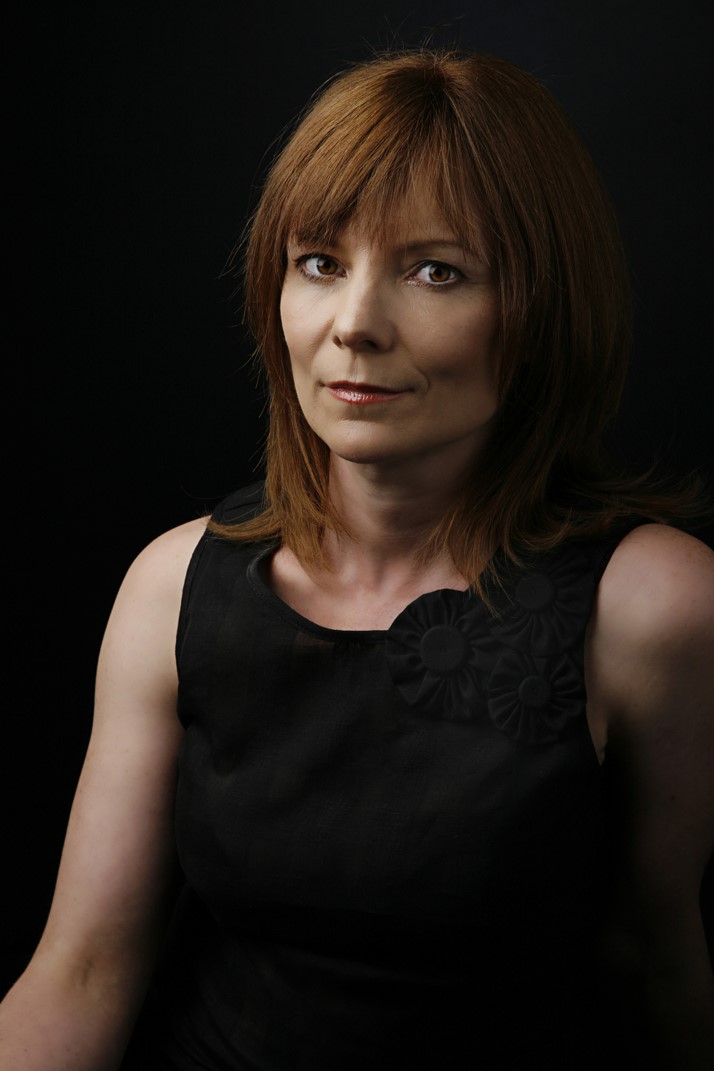 Felicity Plunkett is a poet and critic, and has a PhD from the University of Sydney. Her first collection of poetry Vanishing Point won the Arts Queensland Thomas Shapcott Prize and was shortlisted for several other awards. Felicity’s chapbook Seastrands was published in Vagabond Press’s Rare Objects series in 2011, and she is the editor of Thirty Australian Poets (UQP, 2011). She is Poetry Editor with University of Queensland Press and a widely published reviewer.
Felicity Plunkett is a poet and critic, and has a PhD from the University of Sydney. Her first collection of poetry Vanishing Point won the Arts Queensland Thomas Shapcott Prize and was shortlisted for several other awards. Felicity’s chapbook Seastrands was published in Vagabond Press’s Rare Objects series in 2011, and she is the editor of Thirty Australian Poets (UQP, 2011). She is Poetry Editor with University of Queensland Press and a widely published reviewer.
2016 Calibre Essay Prize winner
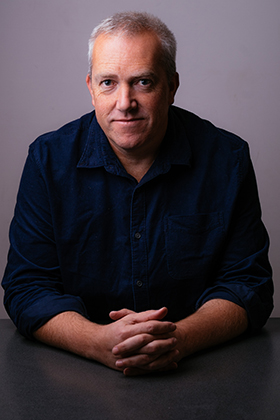 Michael Winkler (photograph by Chris Riordan)Michael Winkler is the winner of the 2016 Calibre Prize for an Outstanding Essay. The judges – Sophie Cunningham (winner of the 2015 Calibre Prize) and Peter Rose – chose Mr Winkler's essay 'The Great Red Whale' from a field of almost 200 entries submitted from thirteen different countries. Michael Winkler receives $5,000 and his essay appears in the June–July 2016 issue of ABR.
Michael Winkler (photograph by Chris Riordan)Michael Winkler is the winner of the 2016 Calibre Prize for an Outstanding Essay. The judges – Sophie Cunningham (winner of the 2015 Calibre Prize) and Peter Rose – chose Mr Winkler's essay 'The Great Red Whale' from a field of almost 200 entries submitted from thirteen different countries. Michael Winkler receives $5,000 and his essay appears in the June–July 2016 issue of ABR.
'The Great Red Whale' is an essay about fractures, overlaying the ruptures within the author's psyche with the fissure between Indigenous and non-Indigenous Australians, something he believes keeps us 'heartsore as a nation'. This excoriating yet remarkably subtle meditation is also a tribute to consolations: landscape, specifically the desert of Central Australia, and literature, notably Moby-Dick.
On learning that he had won the Calibre Prize, Michael Winkler – a Melbourne author – told Advances: 'Reading ABR every month gives me access to sophisticated and important ideas in accessible form. The Calibre Prize essays are not only an annual ABR highlight but notable events in our national life. I remember reading the first Calibre Prize-winning essay by Elisabeth Holdsworth (2007), her pungent masterwork about memory and return. I never see the name Slavoj Žižek without thinking of Kevin Brophy's astonishing account (2009) of living near an abusive neighbour. When I worked with children with autism, I sought insights from rereading Rachel Robertson's 'Reaching One Thousand' (2008). I feel simultaneously completely unworthy and utterly overjoyed to have any proximity to this stellar list of past winners.'
The judges have commended two other essays: Joshua Barnes's 'Terra Australis Incognita' and Sarah Viren's 'Dear Julie'.
This is the tenth Calibre Prize, which is intended to advance the essay form. We look forward to offering Calibre again in 2017.
Michael Winklers’s winning essay is published in the June–July 2016 issue of ABR.
![]() Click here to download the media release
Click here to download the media release
Subscribe to ABR Online to gain access to this issue online, plus the ABR archive (containing all Calibre Prize essays published from 2011).
Click here for more information about past winners.
Click here for more information about the judges.
We gratefully acknowledge the generous support of Mr Colin Golvan QC.
ABR Reader Survey 2016
We love hearing from readers as to what they like about Australian Book Review – whom they enjoy reading; what they would like to see more (or less) of. We have a bright, engaged readership, and we always welcome your comments. Please complete our reader survey and help us to go on improving the magazine.
ABR is a fast-changing and adaptive arts organisation. Here are some of the programs we have introduced in recent years: writers' fellowships now worth $7,500; three lucrative international prizes; podcasts; States of Poetry; ABR Online; an improved website; fully paid one-year editorial internships, etc.
We will continue to improve the magazine and offer new programs, but before we do it will be good to hear from ABR readers of all kinds (subscribers, non-subscribers, website browsers, devotees, occasional readers) as to how they rate the magazine and what they would like to see in it.
The survey takes about five minutes to complete. Feel free to skip any questions that don't interest you. The survey is totally anonymous – unless you want to be in the running for one of two five-year complimentary subscriptions to ABR Online (in which case we will need your name and email address).
With best wishes
Peter Rose
Editor
Peter Porter Poetry Prize Judges' Report 2016
More than 700 poets entered this year's Peter Porter Poetry Prize; just over 200 of these entries came from overseas. The judges were Luke Davies, Lisa Gorton and Kate Middleton. They completed their judgement without knowing the name, gender, background or nationality of any entrant.
This prize honours Peter Porter and its judges seek to honour him not only in name but in principle: by valuing various approaches to poetry, and by a serious commitment to the judging process. The judges read all entries over the summer and together compiled a varied and impressive longlist of nearly seventy poems, which they read over for several weeks. Over a day in Sydney, they discussed these poems and created a shortlist of five poems: poems which had stayed in their minds all summer and which, on each rereading, kept the power to surprise, impress and move them. In the judges' view, any of these shortlisted poems would have made a worthy winner of this year's Peter Porter Poetry Prize. The five shortlisted poems are '... a passing shower? (18 aphorisms verging on a narrative)', 'Lament for "Cape" Kennedy', 'Prelude to a Voice', 'Rage to Order' and 'Tailings'.
By turns lyrical, jerky, sardonic, funny and facetious, '... a passing shower? (18 aphorisms verging on a narrative)' charges the spaces between its aphorisms with imaginative energy: it builds a sort of electric tension between opposing voices, registers and ways of noticing the world. The poem works with an hallucinatory cognitive dissonance, which challenges settled poetic modes.
'Lament for "Cape" Kennedy' is an elegy of unshowy craft and emotional heft. Keeping its conversational tone, it ranges easily over details, personal memories and stories of injustice and dispossession. The intimacy of its details and the immediacy of its speaking voice enhance and enrich the sorrow and anger of this powerful lament.
'Prelude to a Voice' works at the same time with local detail and mythic depth: 'to keep/ an eye out for snakes/ while carrying the burden/ of water in a steel flask,/ as if bearing the urn/ of all our deaths'. Images open out of images, new forms out of white spaces: the whole page works like a phantasmagorical landscape, in which each part forms its own centre. This is a poem that captures how the mind shimmers in and outside language and its feeling for place.
'Rage to Order' is a poem of vertiginous self-consciousness: its extremity of feeling countervailed by the pressure of silence it makes felt. Like Gerard Manley Hopkins in 'No worst, there is none', this poet brings experience to a pitch in language at once pared back and wild with its play of repeating words and sounds.
'Tailings' is a poem remarkable for its close-woven language, everywhere charged with vivid details; and, at the same time, remarkable for its open and wide-ranging attentiveness. In 'Tailings' the poet nowhere sets place at an aesthetic distance but everywhere attends to its mess and profligacy, a mode of perception alive to the hunger of animals.
2016 Winner
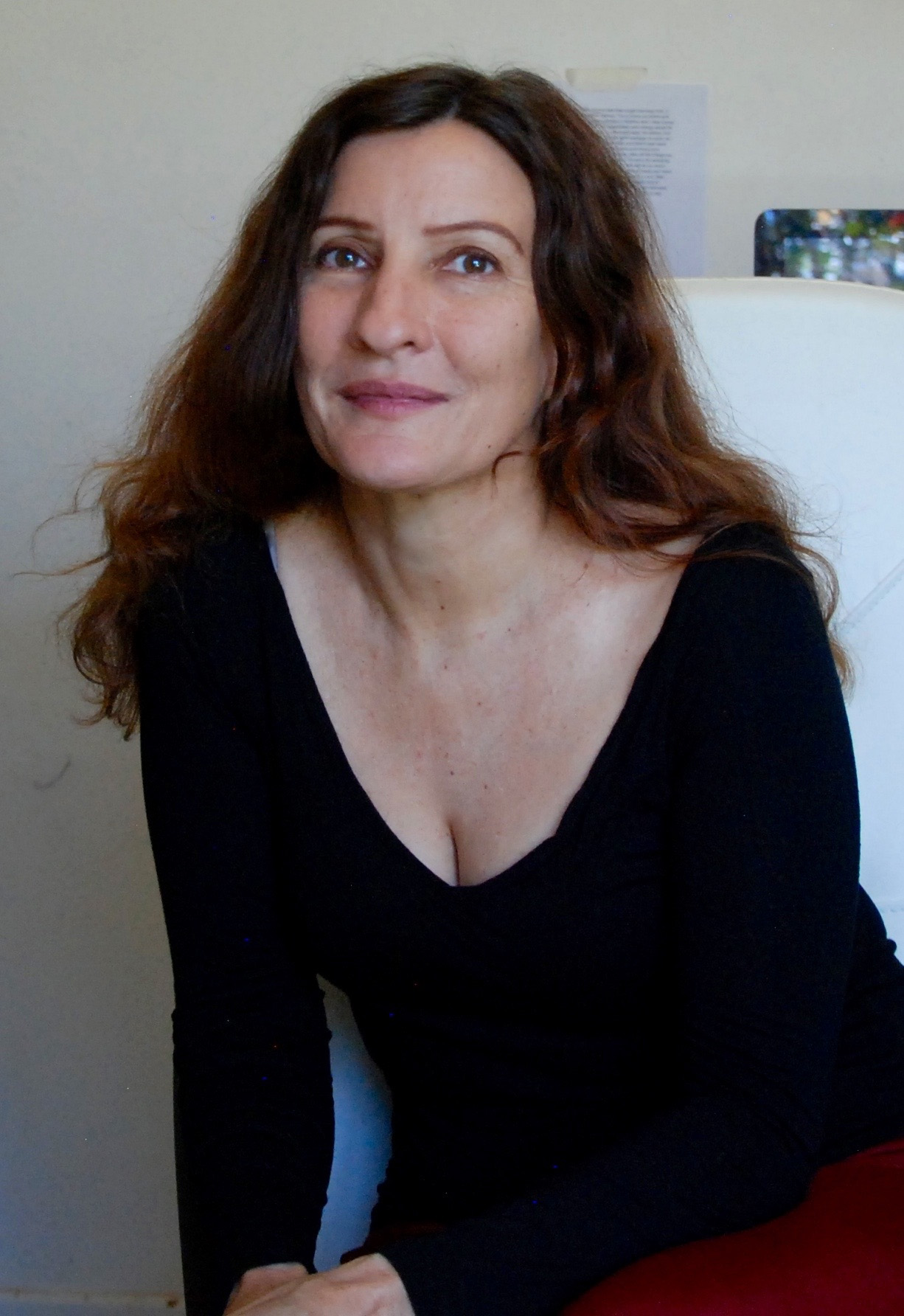
Australian Book Review is delighted to announce that Amanda Joy has won the 2016 Peter Porter Poetry Prize for her poem 'Tailings'. Morag Fraser named Amanda Joy as the overall winner at a ceremony in the ABR office at Boyd Community Hub. She receives $5,000 for her poem, which was selected from a field of around 730 poems. She also receives Arthur Boyd's etching and aquatint 'The unicorn and the angel', 1975 from the series The lady and the unicorn, 1975, donated by Ivan Durrant in memory of Georges Mora.
Amanda Joy is a poet and visual artist living in Fremantle, Western Australia. She has written two poetry chapbooks, Orchid Poems (Mulla Mulla Press) and Not Enough to Fold (Verve Bath Press, USA) Her poems have been included in journals and anthologies, including The Best of Australian Poems, Regime, and Toronto Quarterly. She is a selector for Creatrix Haiku Journal.
The other shortlisted poets were Dan Disney, Anne Elvey, Lisa Gluskin Stonestreet, and Campbell Thomson. Each of them receives $625.
The judges were Luke Davies, Lisa Gorton, and Kate Middleton.
From the judges’ report:
‘“Tailings” is a poem remarkable for its close-woven language, everywhere charged with vivid details; and, at the same time, remarkable for its open and wide-ranging attentiveness. In “Tailings” the poet nowhere sets place at an aesthetic distance but everywhere attends to its mess and profligacy, a mode of perception alive to the hunger of animals.’
![]() Click here to download the media release.
Click here to download the media release.
Click here for more information about past winners.
Click here for more information about the judges.
Click here to read the Peter Porter Poetry Prize Judges' Report 2016
ABR gratefully acknowledges the support of Ms Morag Fraser AM and Mr Ivan Durrant.
ABR Elizabeth Jolley Short Story Prize
The Australian Book Review Elizabeth Jolley Short Story Prize is one of Australia's leading prizes for an original short story. It honours the work of the great Australian writer Elizabeth Jolley (1923–2007). Maria Takolander won the inaugural Australian Book Review Short Story Competition in 2010. In 2011 the prize was renamed the ABR Elizabeth Jolley Short Story Prize.
Past Jolley Prize winners
2010: Maria Takolander
2011: Carrie Tiffany and Gregory Day
2012: Sue Hurley
2013: Michelle Michau-Crawford
2014: Jennifer Down
2015: Rob Magnuson Smith (UK). Magnuson Smith was the first international winner of the Jolley Prize.
2016: Josephine Rowe
2017: Eliza Robertson (Canada)
2018: Madelaine Lucas (USA/Australia)
2019: Sonja Dechian
2020: Mykaela Saunders
2021: Camilla Chaudhary (UK)
2022: Tracy Ellis
2023: Rowan Heath
2024: Jill Van Epps (USA)
Click here for more information about past winners of the Jolley Prize and to read their stories.
ABR gratefully acknowledges the support of Ian Dickson.
'To win the Jolley Prize is a surreal and wonderful feeling. At this stage of my writing life, when I am working on my first book, to receive this vote of confidence from such a respected literary establishment as Australian Book Review is incredibly meaningful. Most of all, this encouragement has given me new motivation to focus on my work and continue down this path.'
Madelaine Lucas, 2018 winner
‘My very first publication came from a magazine contest, so I know first hand the opportunities they provide to new writers. I am incredibly grateful to ABR and the judges for choosing my story and helping me to connect with Australian readers.’
Eliza Robertson (Canada), 2017 winner
Winning the Jolley Prize after being overseas for several years was an immensely bolstering welcome back – all the more so for the honour it pays to one of the most influential and tenacious forces in Australian literature.’
Josephine Rowe, 2016 winner
'I am thrilled to be this year's winner of the ABR Elizabeth Jolley Short Story Prize. This important prize encourages all international writers of fiction who want their work to be judged as it should be – on its own merits and strictly anonymously. I am very grateful to Australian Book Review and the judges.'
Rob Magnuson Smith (UK), 2015 Winner
'To win the ABR Elizabeth Jolley Short Story Prize is a delicious honour.'
Gregory Day, 2011 joint winner
2016 ABR Elizabeth Jolley Short Story Prize
Australian Book Review is delighted to announce that Josephine Rowe has won the 2016 ABR Elizabeth Jolley Short Story Prize for her story 'Glisk'. Ian Dickson announced Josephine as the overall winner at the 2016 Melbourne Writers Festival. Anthony Lawrence placed second for his story 'Ash' and Jonathan Tel came third for his story 'The Water Calligrapher's Women'. Subscribers can read all three shortlisted stories in the August 2016 Fiction issue. We would like to congratulate all three shortlisted entrants and thank all those who entered their stories
This year the prestigious ABR Elizabeth Jolley Short Story Prize Prize attracted almost 1,400 entries from thirty-eight countries. The 2016 Jolley Prize is worth a total of $12,500, with a first prize of $7,000 and supplementary prizes of $2,000 and $1,000.
The judges also commended three stories – ‘Help Me Harden My Heart’ by Dom Amerena, 'Window’ by Cate Kennedy, and ‘Slut Trouble’ by Beejay Silcox. The commended authors each receive $750 and their stories will be published by ABR.
The 2016 Jolley Prize was judged by ABR Deputy Editor Amy Baillieu, and authors Maxine Beneba Clarke and David Whish-Wilson. Click here for more information about the judges.
About the 2016 Jolley Prize shortlisted authors
Anthony Lawrence has published sixteen books of poems and a novel. His most recent collection is Headwaters (Pitt Street Poetry, 2016). His books and poems have won a number of awards, including the Peter Porter Poetry Prize (for 'Domestic Emergencies' in 2010) and the NSW Premier's Award. He lives on the far north coast of New South Wales. Read his shortlisted story 'Ash'
Josephine Rowe is the author of two short story collections and the novel A Loving, Faithful Animal (2016). Her fiction and essays have appeared in McSweeney’s Quarterly Concern, Best Australian Stories, The Monthly, The Saturday Paper, and elsewhere. She is a recent recipient of a Stegner Fellowship in fiction from Stanford University. Her story ‘Suitable for a Lampshade’ won the Reader’s Choice Award in the 2010 ABR Elizabeth Jolley Short Story Prize. Read her winning story 'Glisk'.
Jonathan Tel’s stories have won the Sunday Times EFG Short Story Prize 2016, the Commonwealth Short Story Prize 2015, and the VS. Pritchett Prize from the Royal Society of Literature 2015. His story ‘Year of the Panda’ was commended in the 2015 ABR Elizabeth Jolley Short Story Prize. He has lived in Tokyo, Jerusalem, Berlin, London, New York and San Francisco. Read his shortlisted story 'The Water Calligrapher's Women'
The 2016 Jolley Prize longlist
'Help Me Harden My Heart' by Dom Amerena (Vic) - Commended
'Like Family' by Glendaliz Camacho (US)
'Material Remains' by Stephanie Buckle (NSW)
'Batons and Ropes' by SJ Finn (Vic)
'Blue Monsters' by Anthony Howcroft (US)
'Window' by Cate Kennedy (Vic) – Commended
'Ash' by Anthony Lawrence (NSW) - Shortlisted
'First Regret' by Jessica Lim (QLD)
'The other girl' by Beth McMullan (WA)
'Shearwater' by Astrid O'Neill (ACT)
'Honeysuckled' by Elisabeth Passmore (NSW)
'Dignity' by Mirandi Riwoe (QLD)
'Glisk' by Josephine Rowe (Vic) – Winner
'Perfect' by Kate Ryan (Vic)
'Slut Trouble' by Beejay Silcox (ACT) – Commended
'Will it leave a scar?' by Elizabeth Smyth (QLD)
'The Water Calligrapher's Women' by Jonathan Tel (UK) – Shortlisted
'Black Soil' by Jessica White (QLD)
'Mothership' by Michelle Wright (Vic)
Please read our list of Frequently Asked Questions before contacting us with a question about the Jolley Prize.
You may be interested in reading the shortlisted stories from previous years.
More information about all our past winners is available here, along with links to their stories.
2015 Jolley Prize winner: Rob Magnuson Smith
Announcing the 2015 Jolley Prize winner
Australian Book Review is delighted to announce that Rob Magnuson Smith has won the 2015 ABR Elizabeth Jolley Short Story Prize for his story 'The Elector of Nossnearly'. Award-winning author Steven Carroll announced Rob as the overall winner at the 2015 Brisbane Writers Festival. Michelle Cahill placed second for her story 'Borges and I' and Harriet McKnight came third for her story 'Crest'. Subscribers can read all three shortlisted stories in the September 2015 Fiction issue. We would like to congratulate all shortlisted entrants and thank all those who entered their stories.
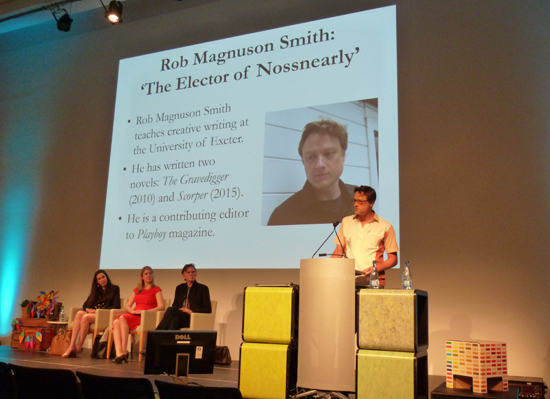 Rob Magnuson Smith reads from his story 'The Elector of Nossnearly' at the 2015 Jolley Prize ceremony at the Brisbane Writers Festival
Rob Magnuson Smith reads from his story 'The Elector of Nossnearly' at the 2015 Jolley Prize ceremony at the Brisbane Writers Festival
The ABR Elizabeth Jolley Short Story Prize is one of the country’s most prestigious awards for short fiction. This year the Jolley Prize attracted over 1200 entries from over thirty-one different countries, most of stories were newly written for this competition. They kept busy our three judges: Amy Baillieu, Sarah Holland-Batt, and Paddy O'Reilly.
About Rob Magnuson Smith
 Rob Magnuson Smith's début novel, The Gravedigger, appeared in 2010 after winning the Pirate’s Alley William Faulkner Award. He has written many articles of investigative journalism for Playboy, where he is contributing editor. His second novel is Scorper (Granta Books, 2015). A graduate of University of East Anglia’s MA in Creative Writing and Bath Spa University’s PhD in Creative Writing, Rob is currently a lecturer at Exeter University and lives in Cornwall. Subscribers can read his winning story 'The Elector of Nossnearly' in the September 2015 Fiction issue.
Rob Magnuson Smith's début novel, The Gravedigger, appeared in 2010 after winning the Pirate’s Alley William Faulkner Award. He has written many articles of investigative journalism for Playboy, where he is contributing editor. His second novel is Scorper (Granta Books, 2015). A graduate of University of East Anglia’s MA in Creative Writing and Bath Spa University’s PhD in Creative Writing, Rob is currently a lecturer at Exeter University and lives in Cornwall. Subscribers can read his winning story 'The Elector of Nossnearly' in the September 2015 Fiction issue.
2016 Calibre Prize Judges
Sophie Cunningham has been a writer and publisher in Australia for thirty years. A former publisher and editor, she is the author of two novels, Geography (2004) and Bird (2008). For the City Series, she wrote Melbourne (2011). Warning: The Story of Cyclone Tracy, her most recent book, was published by Text Publishing in 2014 and was long-listed for both a Walkley Award and the Kibble Prize. She is a former Editor of Meanjin, and until recently was Chair of the Literature Board of the Australia Council. She is a founding and current board member of The Stella Prize, a prize for Australian women’s writing. She lived in Brooklyn, New York, in 2014 and is now based in San Francisco, California. She is currently writing a novel called This Devastating Fever, about Leonard Woolf’s time in Ceylon in the early 1900s, and a collection of linked essays, tentatively entitled 50. She won the 2015 Calibre Prize for her essay 'Staying with the trouble'.
Peter Rose has been the Editor of Australian Book Review since 2001. Previously he was a publisher at Oxford University Press throughout the 1990s. Rose has published several books of poetry, a family memoir, Rose Boys (2003, now a Text Classic), and two novels, the most recent being Roddy Parr (Fourth Estate, 2010). His essays have appeared in The Best Australian Essays, and he edited the 2007 and 2008 editions of The Best Australian Poems (Black Inc.). Peter Rose’s long experience in publishing and the literary world complement the magazine’s history of central involvement in Australian letters.

